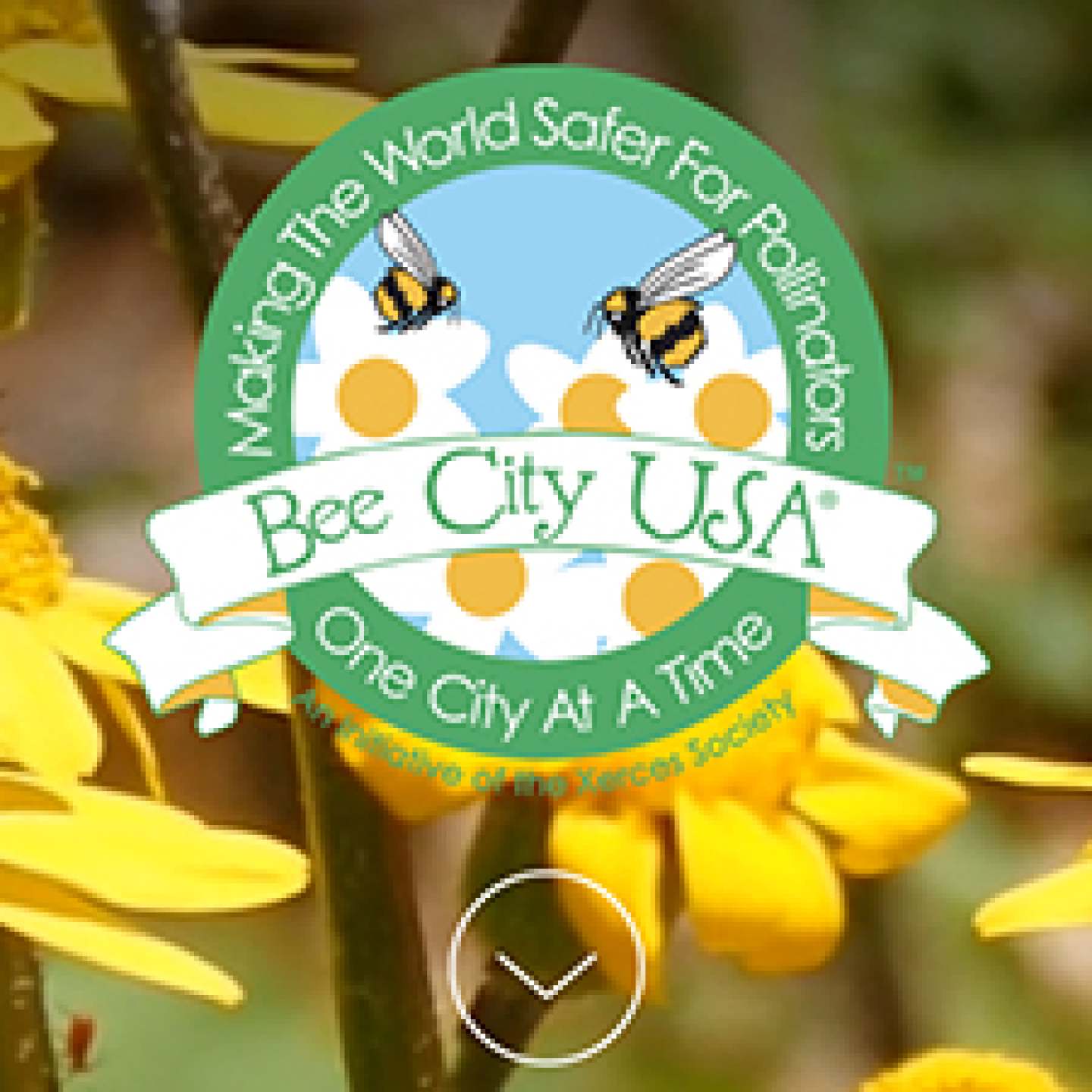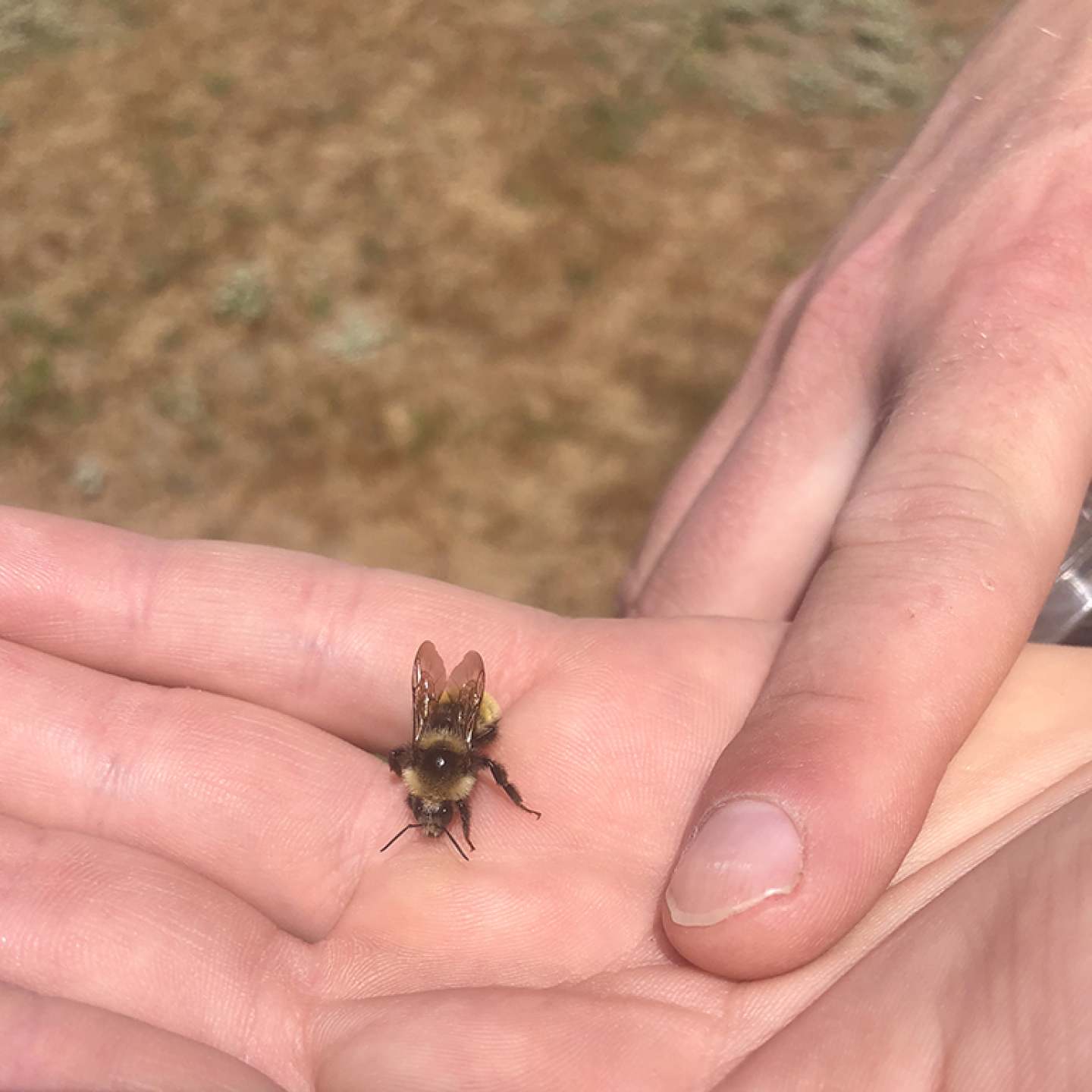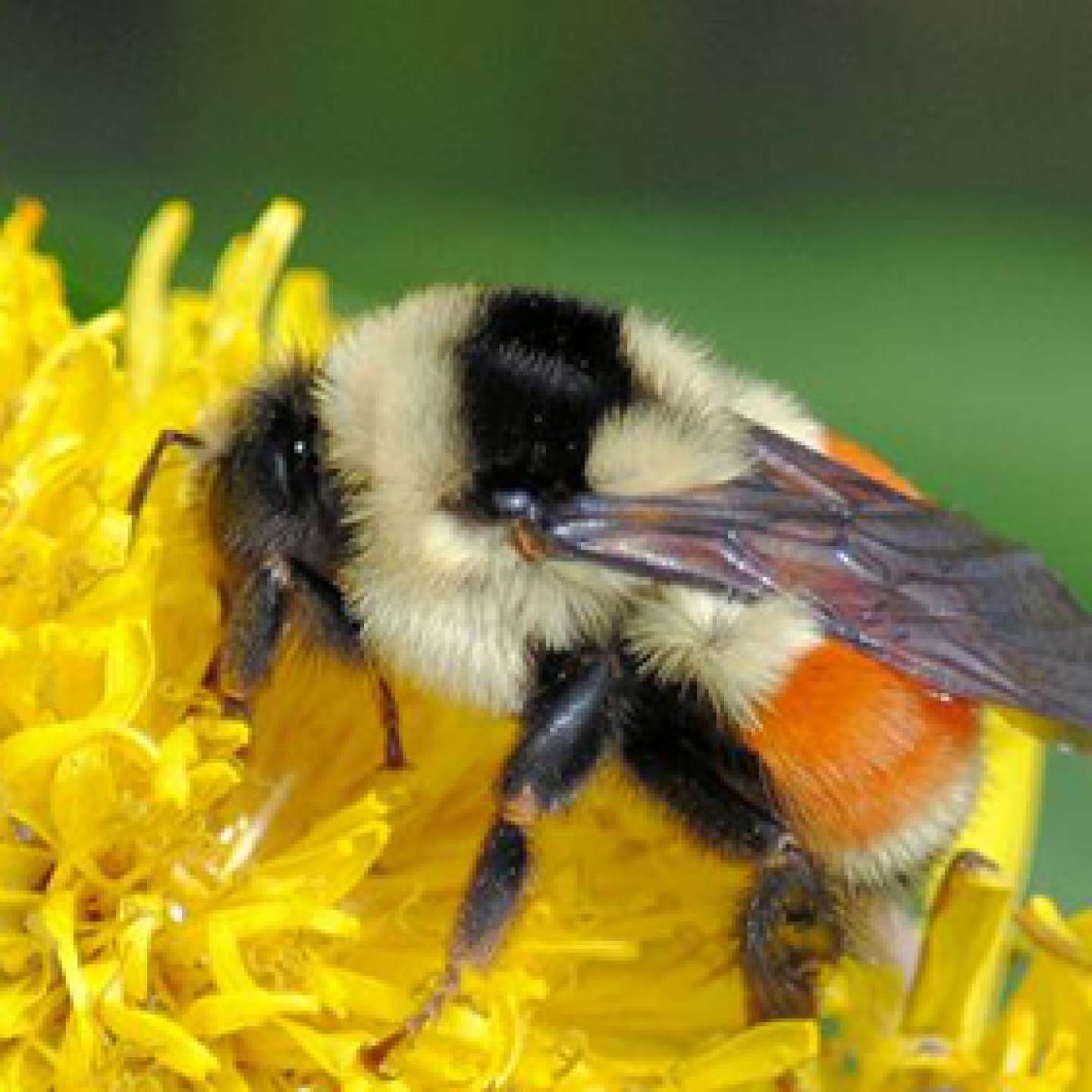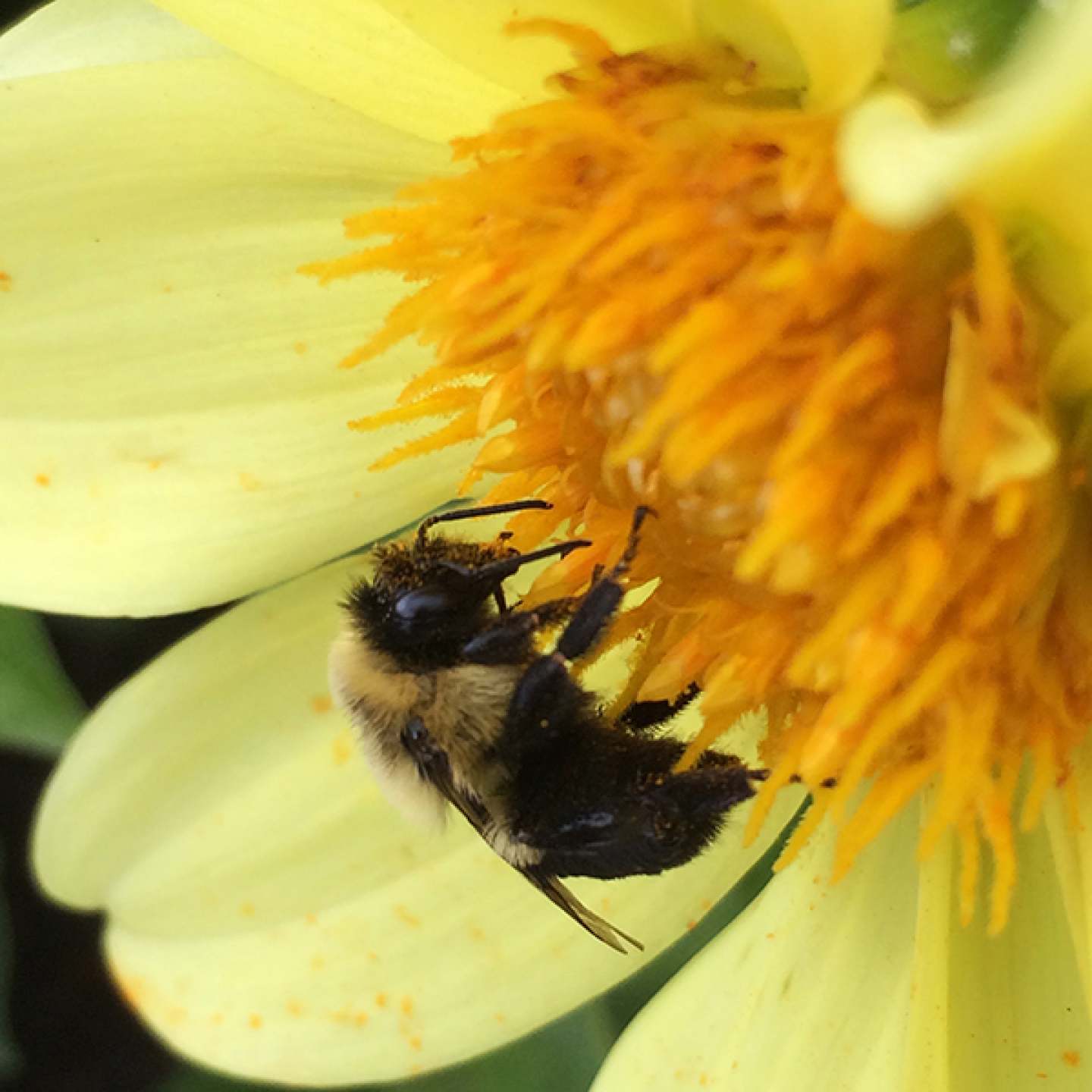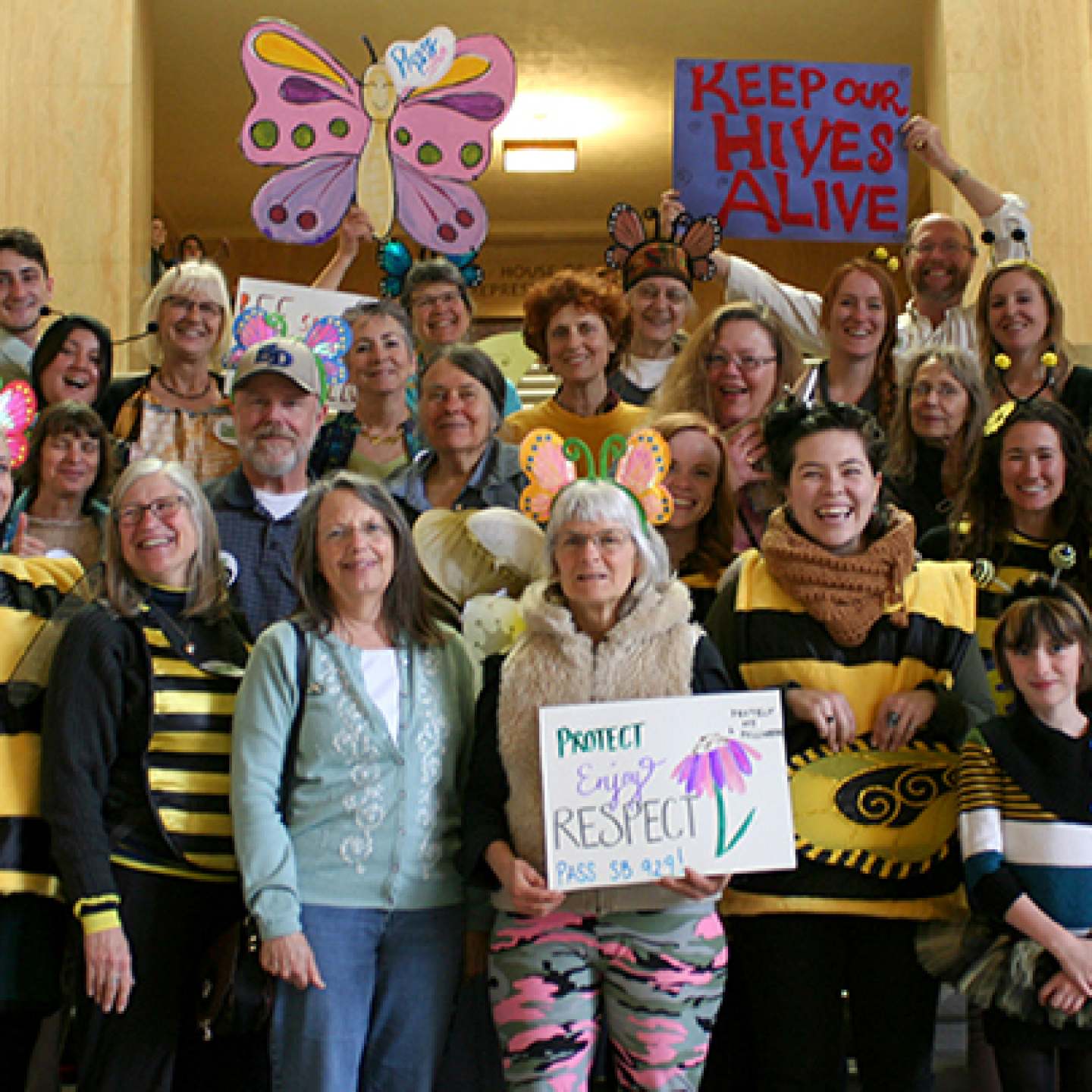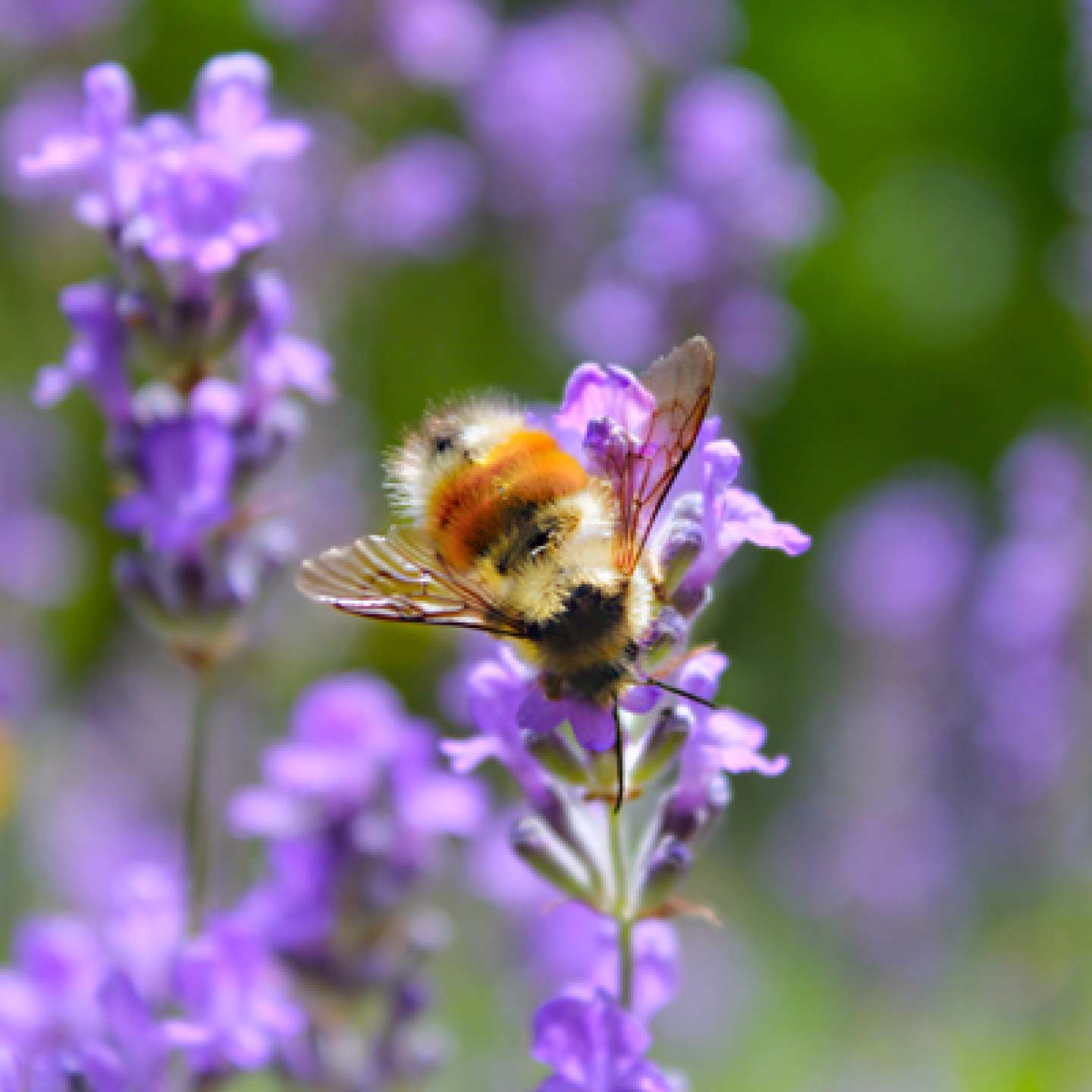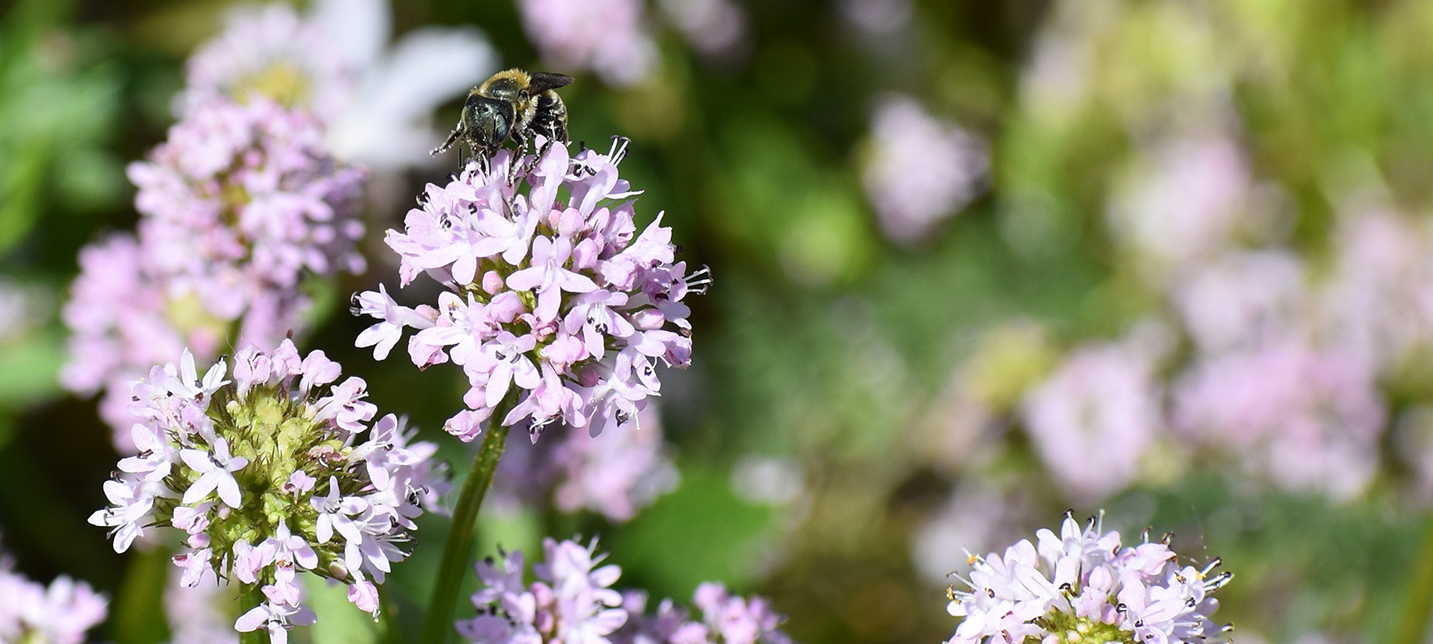
A native bee on a Plectritis (sea blush) plant at Rasor Park. Photo by Emily Matlock.
Our 5th Annual Native Bee Survey was not only fun, it was also a scientific discovery that revealed the diverse and intricate world of native bees in two rare prairie remnants. This year’s bee surveys, conducted at Westmoreland Park and Rasor Park, emphasize the importance of understanding native bee habitat necessary to creating effective habitat conservation plans and restoration efforts.
I’m thrilled to say not only did we have an absolute blast exploring these beautiful prairie remnants, but we also discovered a treasure trove of native bees that left us in awe of nature's wonders.
Westmoreland Park: Where Prairie Magic Unfolds
Picture this: a sunny day, a fragrant breeze, and an enchanting native prairie remnant at Westmoreland Park. Armed with our keen eyes and curiosity, we embarked on a quest to uncover the hidden residents of this thriving ecosystem.
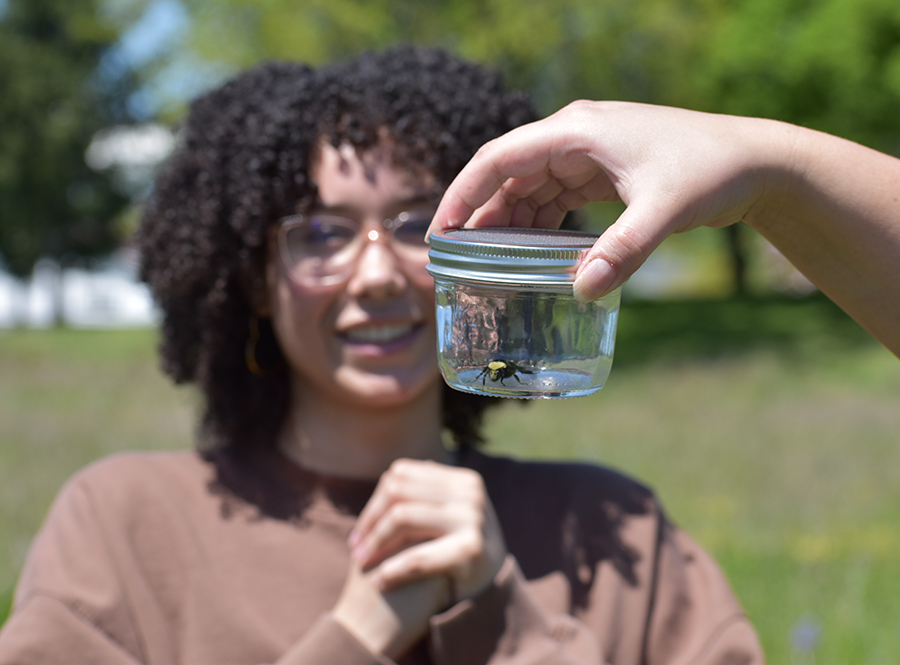
A bee survey participant excitedly brings a Bombus vosnesenskii bee to the attention of bee survey organizers
As we walked through the East Prairie, a meadow bursting with native plant life, we couldn't help but notice the vibrant flowers embracing the landscape. Ranunculus and Camassia danced under the warm rays, their colors beacons of joy. Camas flowers, an important food plant for the Kalapuya original inhabitants of the Willamette Valley, gave the whole meadow a wash of blue-lavender hue. The temperature was a pleasant 72°F, and the partly cloudy sky only added to the allure of our adventure. But what truly stole the show were our incredible bee friends!
We encountered various species, each with its unique charm. Our friends included the familiar Apis mellifera (14 individuals), known as the honey bee, gracefully hovering from flower to flower. We also spotted Bombus vosnesenskii (2 individuals), their fuzzy bodies collecting precious nectar.
Intriguingly, a solitary Xylocopa sp. (Carpenter bee) caught our attention, diligently carving its nest in a nearby tree. And who could forget the magnificent Bombus grizziocolus, the brown-belted bumble (2 individuals) and Bombus californicus, classified as a vulnerable species (1 individual), showcasing their brilliant colors while buzzing around the captivating camas blooms?
Alongside our bee companions, we spotted a few other fascinating creatures. A group of adorable bee flies (7 in total) entertained us with their acrobatic maneuvers, while a delightful ladybug (1 lucky lady) added a sprinkle of luck to our adventure.
Why Bees Matter: Unraveling Native Bee Habitat and Health
Our journey through Westmoreland Park reminds us of the crucial role native bees play in our ecosystems. As habitat restoration and rehabilitation efforts gain momentum, understanding more about the habitat and health of native bees becomes paramount. By conducting surveys like these, we contribute to the ongoing efforts to conserve and protect these essential pollinators.
Rasor Park: Unveiling the Prismatic Symphony of Bees
Our journey continues to Rasor Park, a dry haven adorned with picturesque prairie remnants. The sun shone brightly, illuminating the diverse array of flowering species that embraced the landscape like a colorful quilt. Plectritus, Sidalcea, Ranunculus, Geum, Camassia, and California poppies were just a few of the floral stars performing in this enchanting botanical ballet. The temperature soared to a delightful 76°F, and the cloudless sky beckoned us to uncover the hidden gems residing within this captivating ecosystem.
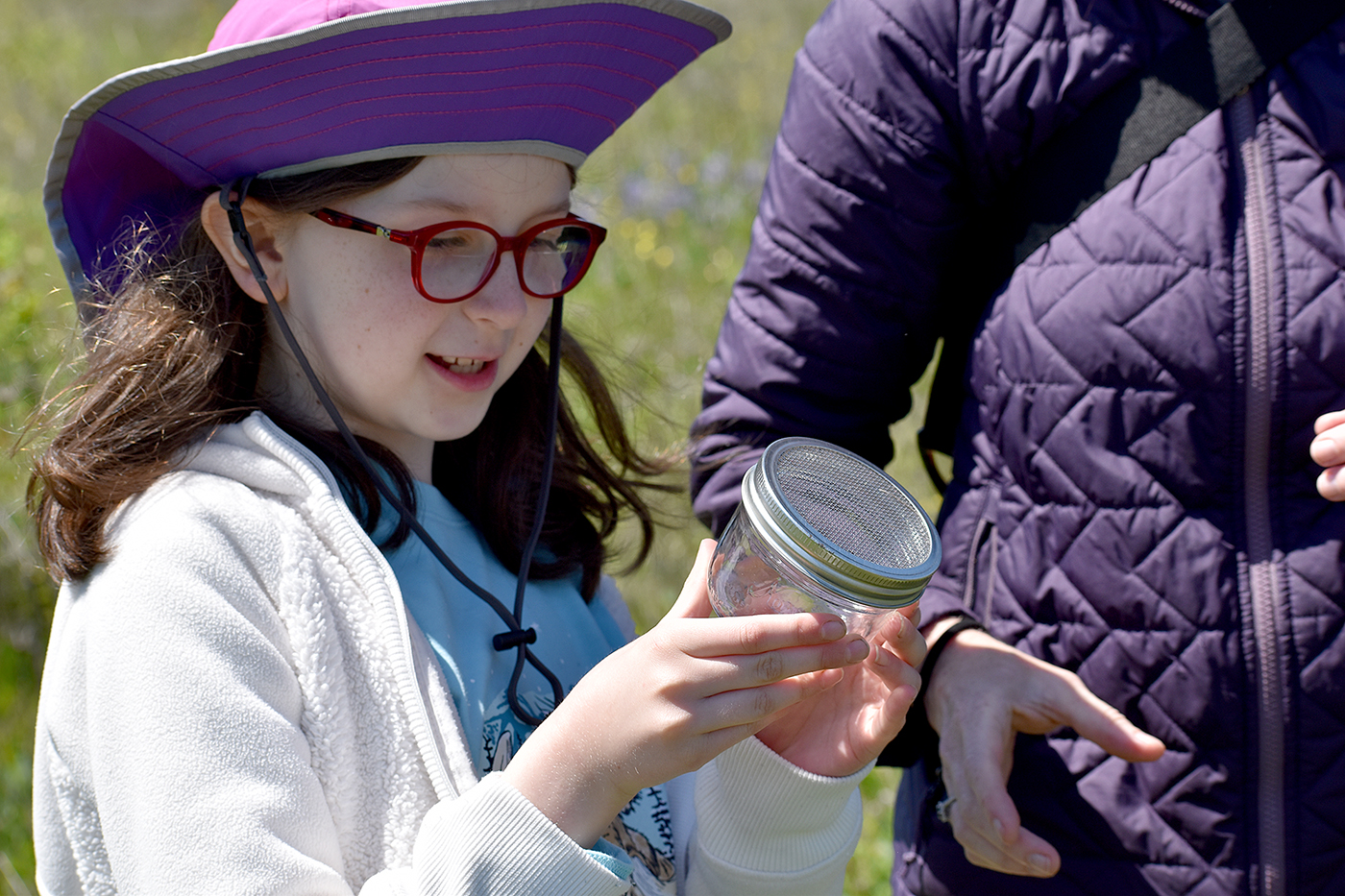
Our bee surveys always bring out plenty of curious bee enthusiasts!
We marked the presence of 14 different bee species in one survey! We saw the ubiquitous Andrena prunorum, or the purple miner bee, a ground-nesting bee and the Halictus tripartitus, an iridescent sweat bee. We also found a prime specimen of ground-nest bees, the Halictus farinosus, which practices cooperative brood care and multi-generational living.
Join Us in Our Effort to Save Oregon's Bees!
But wait, there's more! We need your help to collect even more valuable data and raise awareness about pollinator health and habitat conservation. We're excited to invite you to the upcoming Bee Jazzy celebration, where we'll not only groove to some fantastic tunes but also support our mission to conduct more bee surveys, conduct more outdoor education camps for youth of color and spread the word about the importance of preserving bee habitats. Mark your calendars and let's make a beeline to Bee Jazzy!
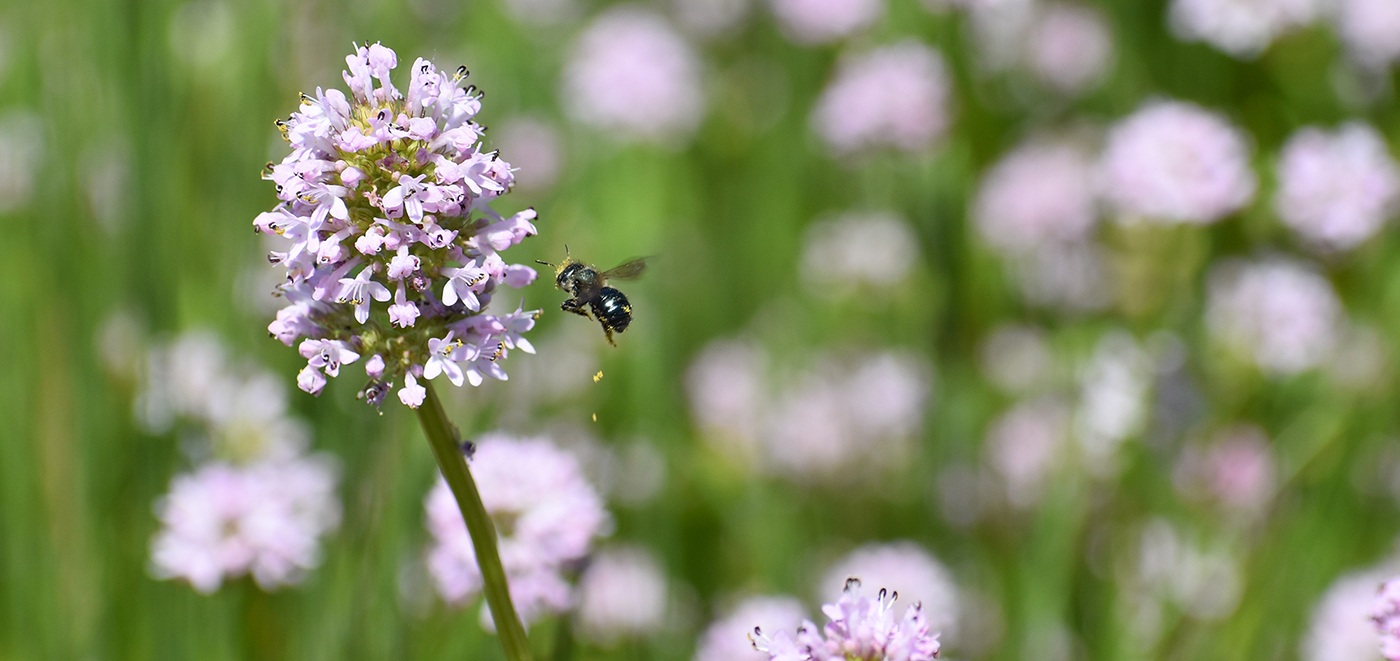
Surveyors found a Andrena bee (a.k.a., a mining bee) in Rasor Park. Photo by Emily Matlock.
Bees: The Unsung Heroes
Buzzing with excitement and charm, native bees are the unsung heroes of our ecosystems! These little powerhouses of pollination play a vital role in keeping our environment healthy and teeming with biodiversity. They're like the VIPs of the floral world, rocking the task of pollinating native plant species! By doing so, they ensure that these plants can reproduce and maintain the balance of the whole ecosystem. Talk about teamwork! These bees are the ultimate locals, perfectly adapted to their surroundings and rocking a long history of coevolution with native plants. It's a love story that goes way back, and we're here to celebrate it! By diving into the fascinating world of native bee diversity, we unlock the secrets to stronger habitat protections and smarter strategies to reduce those pesky pesticides that can harm our buzzing buddies.
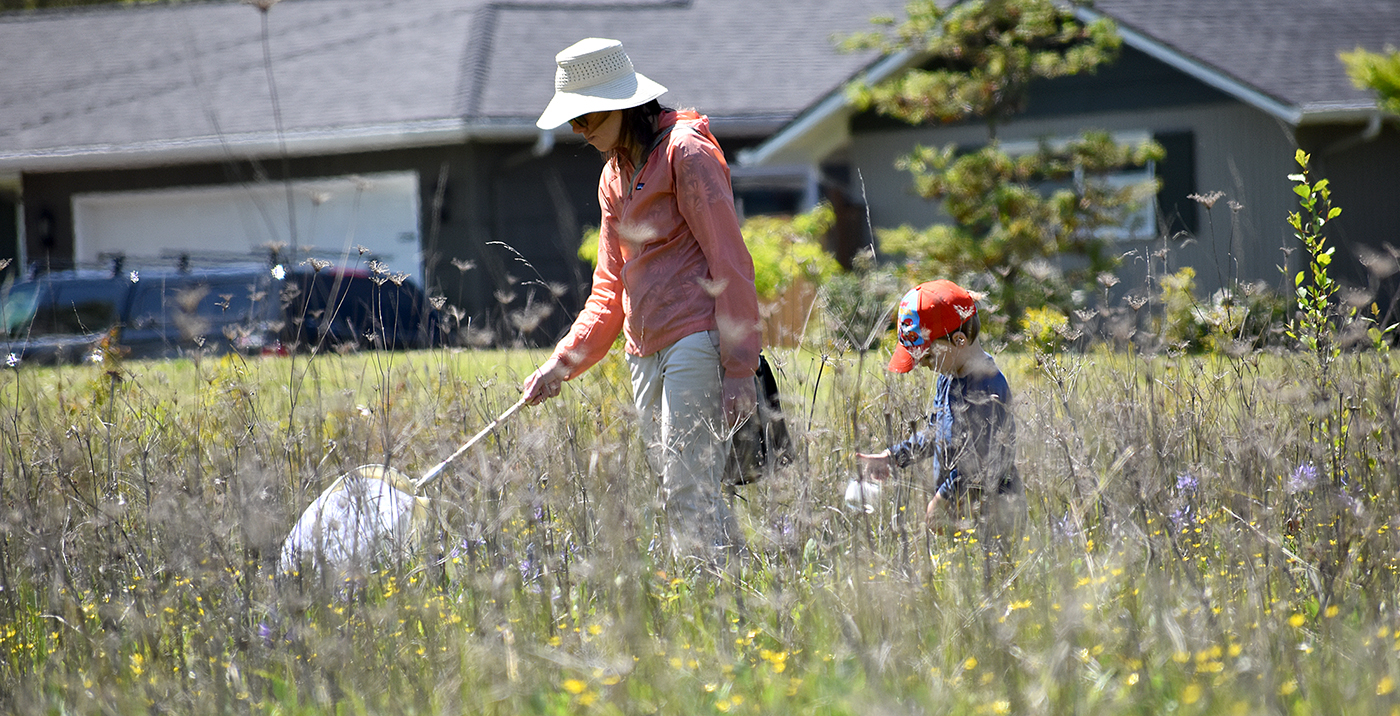
A family of bee surveyors at Westmoreland park enjoy time together. Photo by Emily Matlock.
Through research and discovery, we will unravel the habitat needs, population dynamics, and health status of these amazing creatures. Armed with this knowledge, we can swoop in with targeted conservation measures to protect our beloved pollinators from threats like habitat loss, pesticide exposure, and the unpredictable impacts of climate change.
It's time to rally together and create a buzz-worthy future for our native bees and the ecosystems they call home!
MORE about the results of our two spring bee surveys
The May 10th survey conducted at Westmoreland Park in Eugene focused on the east prairie remnant. The area exhibited a wet habitat with no bare ground, abundant grasses, and constant exposure to direct sunlight throughout the day. Notably, the entire site consisted of native prairie remnant vegetation, with no introduced plantings.
During our survey, we documented the following bee species:
Bombus vosnesenskii (2 individuals)
Apis mellifera (14 individuals)
Xylocopa sp. (Carpenter bee) (1 individual)
Bombus grizziocolus (2 individuals), observed primarily on camas flowers
Bombus californicus (1 individual)
Halictus tripertitus (1 individual)
Osmia sp. (1 individual)
In addition to bees, we observed other notable species, including seven bee flies and a single ladybug.
On May 17th we conducted a survey at Rasor Park in Eugene. This site featured a dry habitat with approximately 5% bare ground and 50%-60% coverage of flowering plants. The area received ample direct sunlight throughout the day and consisted of a native prairie remnant with several introduced plantings of native species.
The bee species identified during the survey at Rasor Park were as follows:
Osmia sp. (5 individuals)
Hoplitis albifrons (1 individual, possibly Sonia)
Seratina sp. (3 individuals)
Seratina acantha (3 individuals, a small carpenter bee found on checkermallow, including 1 male and 2 females)
Apis mellifera (6 individuals)
Bombus californicus (2 individuals)
Halictus farinosus (3 individuals)
Halictus tripartitus (1 individual)
Protosmia rubifloris (1 individual)
Nomada sp. (red) (1 individual)
Andrena prunorum (1 individual)
Andrena sp. (2 individuals)
Bombus vosnesenskii (2 individuals)
Bombus melanopygus (1 individual)
The findings from these surveys contribute to our understanding of native bee populations in prairie remnants. The presence of various bee species, including both solitary and social bees, highlights the importance of maintaining diverse habitats to support their survival. By documenting the specific flowering species utilized by these bees, we gain insights into their foraging preferences and potential plant-pollinator relationships.

Written by Krystal Abrams,
Communications Manager and Bee Enthusiast Extraordinairre
